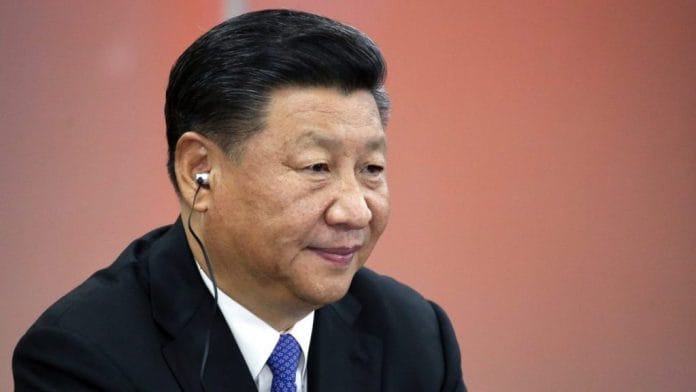Beijing: President Xi Jinping, who assiduously built the image of being “core” leader of the Communist Party of China (CPC), is frustrated with the officials for waiting for his instructions before acting, according to a recently published book by the ruling party.
The book, published by the CPC Central Party Literature Press last month, for the first time made public Xi’s angry remarks, providing a rare glimpse into his meetings which otherwise were shrouded in secrecy.
Xi, 68, had expressed frustration over the lack of initiative among officials at an internal meeting in January and complained that too many waited for instructions from the top before acting.
“Some only get moving when they receive written edicts issued by the leadership and they would do nothing without such instructions,” Xi told a plenary meeting of the Central Committee for Discipline Inspection – CPC’s top-anti corruption body, Hong Kong-based South China Morning Post reported on Sunday.
“My written instructions are the last line of defence. If I didn’t hand out instructions, would these officials do any work? said Xi, who has emerged as the most powerful Chinese leader after the party founder Mao Zedong.
He complained in the January meeting that some officials were good at paying lip service but don’t walk the talk .
His outburst is contrary to his defence of China’s one-party system and top-down approach for successful implementation of policies in comparison to the countries under democracies.
The book, titled Xi Jinping’s Selected Remarks On Comprehensively Governing The Party Strictly (2021 version), also showed that Xi has pushed back against criticism of his tight grip over the party.
It revealed that three years ago he had told another CCDI meeting: “Some have said that the centralisation (of power) by the party in the past five years has gone very well, and the next focus should be about promoting democracy within the party.
“These weird comments are made by people who are either confused, have ill intentions or are dirty themselves,” he said.
Xi heads all the three power centres, the CPC, the military and the Presidency, and unlike his predecessors, he has the prospect of life long tenure in power following the constitutional amendment doing away with two five-year-term limit for the President.
Since Xi took over power in late 2012 he had launched a massive anti-corruption drive in which over 15 lakh party officials including over 50 top generals of the People’s Liberation Army (PLA) were punished.
The crackdown also helped him to quickly consolidate his power and sent shivers down the bureaucracy which in the last two decades was credited to build the massive infrastructure in the country handling billions of dollars helping China to become the world’s second largest economy after the US.
Observers say that the post-anti-graft crackdown of Xi, the bureaucracy has shown signs of slowdown, often requiring reprimands from the leadership to push hard for the implementation of the policies and projects.
The written orders had become an increasingly important part of the leadership’s top-down monitoring in recent years and suggested this had made officials more risk-averse, analysts said.
“Instructions from individual party leaders are more compelling than party policies or rules because they address specific problems to designated offices or the people in charge,” said Ling Li, a professor specialising in Chinese politics and law at the University of Vienna.
The practice was strengthened by a party directive passed in 2019, which specified under what circumstances cadres should seek instructions from their seniors when making decisions, she told the Post.
“It also stipulates that those who have received personal instructions from Xi Jinping are required to report on the progress of their work in implementing these instructions, she said.
Xi’s reliance on written instructions to govern and his tight grip on the bureaucracy have led Chinese officials to become less inclined to take risks, said Dali Yang, a political scientist with the University of Chicago.
“Xi and his colleagues give lots of written instructions and it’s natural for people to wait for them. With the anti-corruption fight and political indoctrination, Xi has successfully placed the entire party under (his) control but that has also made everyone very cautious too, Yang said.
State media and officials are often keen to emphasise Xi’s personal involvement in key policies, such as the decision to build artificial islands in the disputed South China Sea and China’s response to the Covid-19 pandemic.
In the last three years, almost every important policy readout, including the introduction of a sweeping national security law in Hong Kong, or meetings on Xinjiang has referred to Xi.
The centralisation of power under Xi has led local officials to go through the motions without doing anything risky, said Kyle Jaros, an expert on China’s sub-national development at the University of Notre Dame in the US.
“For local officials, the best way to remain politically in bounds [is] to gain express higher-level approval and hence political cover for major new policy programmes or decisions, he added. – PTI
Also read: Revolt by doing nothing — Chinese youth are lying in bed to protest tough jobs, low pay






